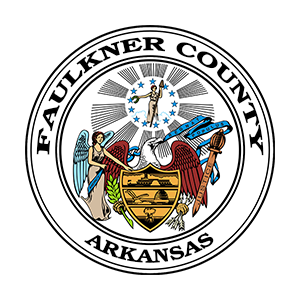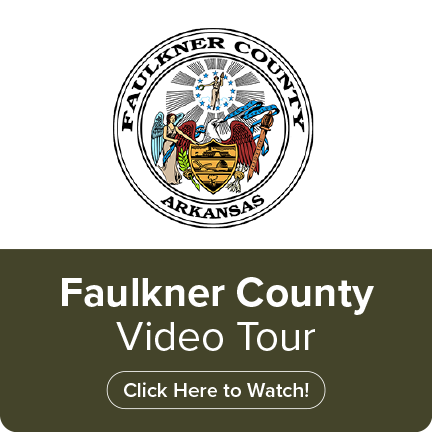Office of Emergency Mgmt/911
Earthquake Information
EARTHQUAKES
An earthquake is the sudden, rapid shaking of the earth, caused by the breaking and shifting of subterranean rock. While earthquakes are sometimes believed to be a West Coast phenomenon, there are actually 45 states and territories throughout the United States that are at moderate to high risk for earthquakes including the New Madrid fault line in Central U.S. Since it is impossible to predict when an earthquake will occur, it is important that you and your family are prepared ahead of time.
What to Do During an Earthquake
Stay as safe as possible during an earthquake. Be aware that some earthquakes are actually foreshocks and a larger earthquake might occur. Minimize your movements to a few steps to a nearby safe place and if you are indoors, stay there until the shaking has stopped and you are sure exiting is safe.
If indoors
• DROP to the ground; take COVER by getting under a sturdy table or other piece of furniture; and HOLD ON until the shaking stops. If there isn’t a table or desk near you, cover your face and head with your arms and crouch in an inside corner of the building.
• Stay away from glass, windows, outside doors and walls, and anything that could fall, such as lighting fixtures or furniture.
• Stay in bed if you are there when the earthquake strikes. Hold on and protect your head with a pillow, unless you are under a heavy light fixture that could fall. In that case, move to the nearest safe place.
• Use a doorway for shelter only if it is in close proximity to you and if you know it is a strongly supported, loadbearing doorway.
• Stay inside until the shaking stops and it is safe to go outside.
• Be aware that the electricity may go out or the sprinkler systems or fire alarms may turn on.
• DO NOT use the elevators.
If outdoors
• Stay there.
• Move away from buildings, streetlights, and utility wires.
• Once in the open, stay there until the shaking stops. The greatest danger exists directly outside buildings, at exits and alongside exterior walls. Ground movement during an earthquake is seldom the direct cause of death or injury. Most earthquake-related casualties result from collapsing walls, flying glass, and falling objects.
If in a moving vehicle
• Stop as quickly as safety permits and stay in the vehicle. Avoid stopping near or under buildings, trees, overpasses, and utility wires.
• Proceed cautiously once the earthquake has stopped. Avoid roads, bridges, or ramps that might have been damaged by the earthquake.
If trapped under debris
• Do not light a match.
• Do not move about or kick up dust.
• Cover your mouth with a handkerchief or clothing.
• Tap on a pipe or wall so rescuers can locate you. Use a whistle if one is available. Shout only as a last resort. Shouting can cause you to inhale dangerous amounts of dust.
What to Do After an Earthquake
• Expect aftershocks..
• Listen to a battery-operated radio or television.
• Use the telephone only for emergency calls.
• Open cabinets cautiously. Beware of objects that can fall off shelves.
• Stay away from damaged areas.
• Help injured or trapped persons.
• Clean up spilled medicines, bleaches, gasoline or other flammable liquids immediately. Leave the area if you smell gas or fumes from other chemicals.
• Inspect the entire length of chimneys for damage. Unnoticed damage could lead to a fire.
• Inspect utilities.
o Check gas leaks.
o Look for electrical system damage.
o Check for sewage and water lines damage.
After a Flood
After a Flood
The following are guidelines for the period following a flood:
• Listen for news reports to learn whether the community’s water supply is safe to drink.
• Avoid floodwaters; water may be contaminated by oil, gasoline, or raw sewage. Water may also be electrically charged from underground or downed power lines.• Avoid moving water.• Be aware of areas where floodwaters have receded. Roads may have weakened and could collapse under the weight of a car.
• Stay away from downed power lines, and report them to the power company.
• Return home only when authorities indicate it is safe.
• Stay out of any building if it is surrounded by floodwaters.
• Use extreme caution when entering buildings; there may be hidden damage, particularly in foundations.
• Service damaged septic tanks, cesspools, pits, and leaching systems as soon as possible. Damaged sewage systems are serious health
hazards.
• Clean and disinfect everything that got wet. Mud left from floodwater can contain sewage and chemicals.
During a Flood
During a Flood
If a flood is likely in your area, you should:
• Listen to the radio or television for information.
• Be aware that flash flooding can occur. If there is any possibility of a flash flood, move immediately to higher ground. Do not wait for instructions to move.
• Be aware of streams, drainage channels, canyons, and other areas known to flood suddenly. Flash floods can occur in these areas with or without such typical warnings as rain clouds or heavy rain.
If you must prepare to evacuate, you should do the following:
• Secure your home. If you have time, bring in outdoor furniture. Move essential items to an upper floor.
• Turn off utilities at the main switches or valves if instructed to do so. Disconnect electrical appliances. Do not touch electrical equipment if you are wet or standing in water.
If you have to leave your home, remember these evacuation tips:
• Do not walk through moving water. Six inches of moving water can make you fall. If you have to walk in water, walk where the water is not moving. Use a stick to check the firmness of the ground in front of you.
• Do not drive into flooded areas. If floodwaters rise around your car, abandon the car and move to higher ground if you can do so safely. You and the vehicle can be quickly swept away.
Driving Flood Facts
Driving Flood Facts
The following are important points to remember when driving in flood conditions:
• Six inches of water will reach the bottom of most passenger cars causing loss of control and possible stalling.
• A foot of water will float many vehicles.
• Two feet of rushing water can carry away most vehicles including sport utility vehicles (SUV’s) and pick-ups.
“TURN AROUND, DON’T DROWN”
Before a Flood
Before a Flood
To prepare for a flood, you should:
• Avoid building in a flood prone area unless you elevate and reinforce your home.
• Elevate the furnace, water heater, and electric panel if susceptible to flooding.
• Install "check valves" in sewer traps to prevent floodwater from backing up into the drains of your home.
• Contact community officials to find out if they are planning to construct barriers (levees, beams, flood walls) to stop floodwater from entering the homes in your area.
• Seal the walls in your basement with waterproofing compounds to avoid seepage.

